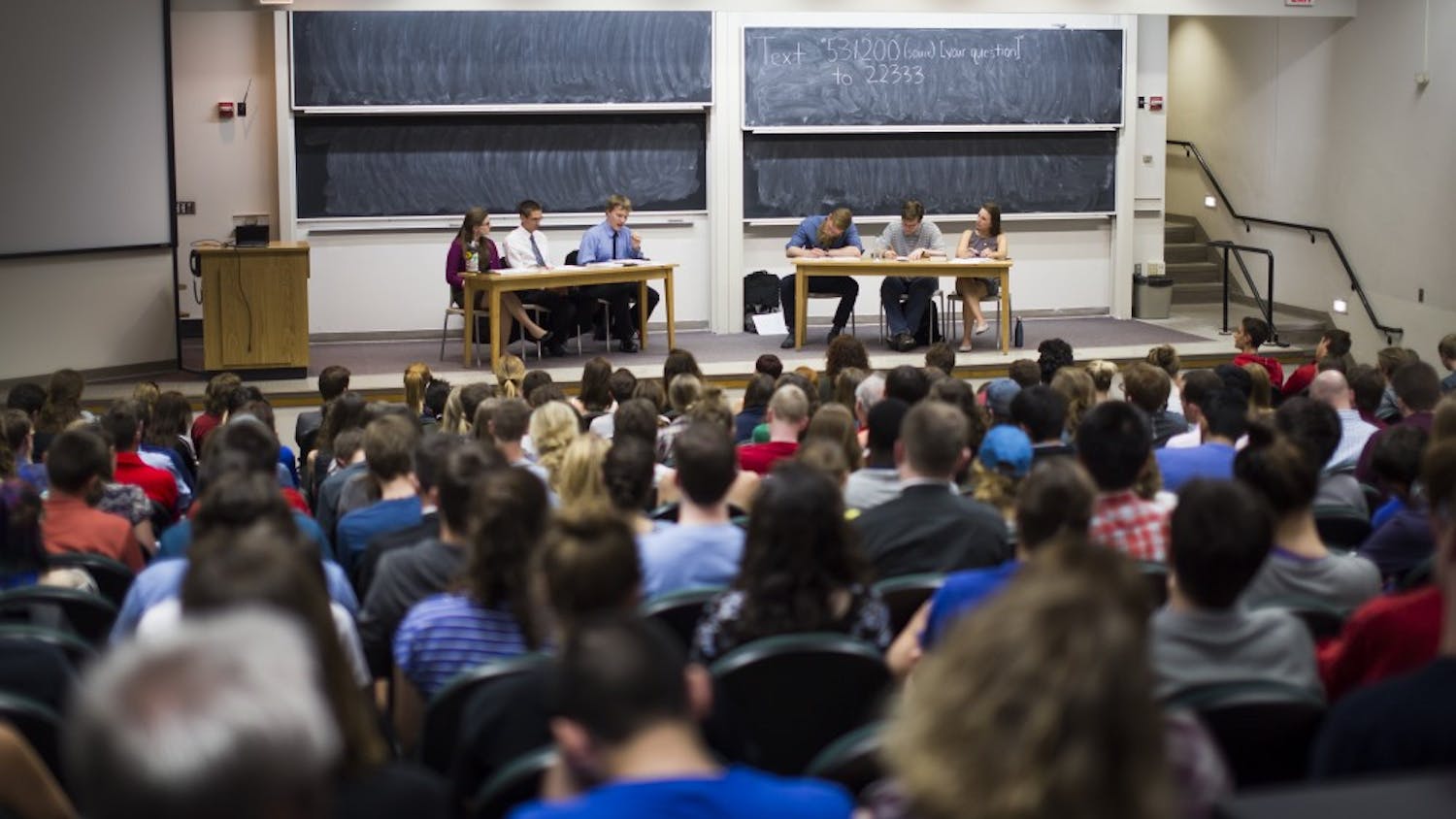With an eager audience of students and adults in attendance Friday, the UW-Madison Law School hosted a conversation regarding the role of constitutions in democracy.
U.S. Sen. Russ Feingold, D-Wis., South African Ambassador to the United States Barbara Masekela and UW-Madison Professor John Kaminski explored topics including racial oppression in South Africa, the history and inherent differences of the American and South African constitutions and the role of individuals in shaping a constitution.
Feingold is the ranking member of the Senate's Africa subcommittee on the Foreign Relations Committee, while Kaminski has served as the Director of the Center for the Study of the American Constitution since 1981.Under Nelson Mandela, Masekela served as his chief of staff. Masekela also served with the African national Conference Observer Mission to the United States. This mission was designed to help build anti-apartheid support in the United States.
Ambassador Masekela spoke extensively about the fall of the apartheid system and the creation of a new constitution in South Africa.
\The changes that took place in South Africa were very much created by the people of South Africa, but additionally, they were created by the overwhelming support that we received from all over the world,"" Masekela said.
Feingold compared the racial oppression of South Africa to that of the United States and hinted particular historical interpretations and jurisprudence relating to the U.S. Constitution may have perpetuated racial discrimination.
""As a legislator, I still see today a tremendous amount of problems that relate to [racial oppression],"" Feingold said. ""The structural problems that relate to the original nature of our constitution make it difficult to get to the final stages of resolving some of the historical tensions of our society.""
Prof. Kaminski spoke at length about the importance of individuals in sparking revolution and creating new ideas, and both Kaminski and Masekela agreed on the similarities between South African leader Nelson Mandela and George Washington.
According to Kaminski and Masekela, both Washington and Mandela surrounded themselves with the most intelligent and engaging political elite, thereby ensuring a variety of opinions and ideas. Kaminski continually praised Washington as one of the prime reasons the United States developed the way it did.
""Perhaps the most critical point [Washington made] was to have a proper respect for government,"" Kaminski said. ""We must respect government and stop bickering.""





